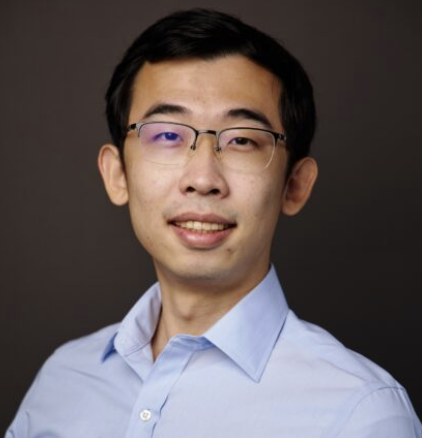The Intersection of Business and Engineering: Jinglong Zhao’s “Product Innovation Pipeline”

Have you ever wondered how your DoorDash order can arrive at your doorstep in a matter of minutes? Jinglong Zhao, Assistant Professor of Operations and Technology Management at the Questrom School of Business and faculty affiliate of the Center for Information & Systems Engineering and Hariri Institute, has the answer.
Zhao’s research is at the intersection of business and engineering. Much of his research centers on answering the question: How do you develop a new product or service to maximize business efficiency and consumer satisfaction? To answer this question, Zhao has developed a “product innovation pipeline” that, using modeling techniques, evaluate and filter business proposals, identifying those that offer the greatest potential for efficiency and customer appeal.
Take DoorDash, for example, a company that Zhao collaborates with. According to Zhao, there are many engineers behind the scenes — such as himself — who are working on how to assign the drivers to the delivery orders, so that each driver delivers the most amount of orders to the highest number of customers as efficiently as possible. The engineers come up with several different proposals under different assumptions.
For instance, one proposal could assign ten orders to the same driver, so that this driver could deliver a larger batch of orders to customers in the same area but customers would have higher wait times. Another proposal could suggest that the driver only delivers two or three orders at a time so that the delivery time is shorter, but then they would have to make more trips between picking up the food and delivering it to customers. “So the engineers, they come up with hundreds of such business developments, and they use the typical analytical or modeling tools to narrow it down to the most optimal 10,” Zhao said.
Finally, the company selects from this narrowed-down pool by running experiments or A/B tests. A/B testing is considered the gold standard for evaluating the performance of a proposal in real-world conditions because it allows companies to directly compare their key performance indices (KPIs) under different strategies. However, running these experiments is costly and time-consuming — both in terms of logistics and potential customer impact — so it’s only feasible to test a small number of proposals. That’s why narrowing the list from 100 to 10 through modeling is a critical step in the product innovation pipeline.
Recently, Zhao published an article, titled “Experimental Design For Casual Inference Through An Optimization Lens,” about how to run an experiment through an optimization perspective. According to Zhao, he deals with questions of efficiency because there’s often stiff competition between companies — for instance, UberEats and DoorDash — to see who can iterate their product faster. Zhao works on optimizing the data that goes into the experimentation process. “In that world, if you can reduce the data requirement by, say, 20%, it will typically mean that you can reduce the time of running the experiment by 20% and then you can iterate products, maybe one week earlier, [which is] truly meaningful for them,” said Zhao.
In addition to applications in the digital world, Zhao’s pipeline can be used for healthcare applications. “As [companies] develop new treatments, new therapies or new vaccines, they will run a pilot experiment to evaluate this,” Zhao said. Based on his work, the company will be able to “see if it’s worth it to roll it out and to try to conduct an FDA clinical trial. [Although] the applications may be different, the key idea behind [it] is the same.”
At Boston University, Zhao has taught the Operations and Supply Chain Management class. Currently, the class is being adapted from a 300-level course to a 200-level course that Zhao will teach next year. The class will provide a broad introduction to the fundamentals of operation management and will discuss topics such as new product development, supply chain management, logistics management, etc. The class will answer questions that Zhao addresses through his research, such as “How do you bring a product or service to customers?”
Dr. Zhao is an assistant professor of Operations and Technology Management at the Questrom School of Business, a Hariri Institute junior faculty fellow, and a faculty affiliate at the Center for Information and Systems Engineering at Boston University. He has been at Boston University since July 2021. Prior to that, Zhao earned a PhD in Social and Engineering Systems and Statistics from Massachusetts Institute of Technology.